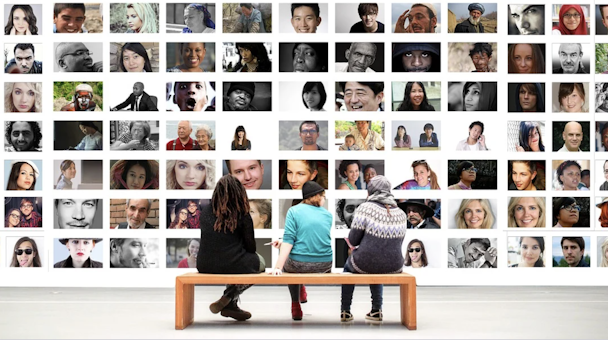‘I’m a big fan of beers and awards, but I’m an even bigger fan of positive change’
With a recent ad industry census showing that just 19% of the workforce identify as working class while as little as 3% of the profession is made up of Black talent, the School of Communication Arts’ chief exec Tom Crossley has penned an open letter asking that creatives do more to encourage young people from low-income and underrepresented backgrounds into the industry.

SCA chief exec pens open letter to the ad industry
It is an accepted if uncomfortable truth that the creative advertising industry has, to be frank, an awful track record with regards diversity and inclusion.
This issue has once again been raised in the Advertising Association’s recent All In Census, putting figures to the uncomfortable truth about diversity (or lack thereof) in the industry. It notes, for example, that non-white representation in London is at 17% compared to the city working population of 33%, while Black representation in particular drops to 1% in C-suite positions.
To say these figures are disappointing is an understatement and my fear is that nothing significant will change in the wake of these statistics. They will simply be swept under the rug and we will all go back to business as usual. Afterall, the census is very well intentioned, but does it tell the industry anything we didn’t know already? If not, are its various action plans ambitious enough to produce any meaningful change?
Over the past six months I have spoken to over a hundred leaders from agencies of all sizes from London and across the UK. We’ve talked at length about the definitions of diversity and inclusion, and how we can collectively work together to help make a difference. There has always been complete agreement as to how vital it is to create a more diverse, vibrant and fair industry.
Great conversations, but unfortunately rarely backed by any understanding or – worse yet – commitment to changing the status quo.
As a community of creative professionals who want to attract more young bright talent into our ranks, we need to focus on tangible measures that will encourage people from all backgrounds to join us. While the All In Census does include calls to action, like improving web accessibility and analyzing data on employee backgrounds, these kinds of moves shouldn’t take precedence over concrete changes that foster diversity through practical considerations.
My firm belief is that urgent changes need to take place in two key areas:
Education
We need to help people from underrepresented backgrounds understand the opportunities available to them within the creative industries. As the All In Census found, 73% of the industry has a degree versus 48% of the UK working population, while – in broader terms – only 19% of the respondents were working class. The sad reality is that many people, especially working-class kids, often don’t know what a ‘creative’ is or does. Though the census recommends adopting the Social Mobility Commission Toolkit to address this, I suspect that measuring the socio-economic makeup of a given business only takes us so far. On a more fundamental level, and beginning well before degree-level education, the industry, the education system and central and local governments need to work together to create conditions where barriers to entry into our industry are not just reduced but broken down forever.
Money
On the subject of education, the census also notes that 20% of industry professionals went to a fee-paying school – this group is hugely overrepresented, given that only 8% of the population attend such schools. One of the implications here is that people who come from money are better able to take the leap into the creative professions. As such, if the industry really wants to meet the diversity challenge, finance will have to be made available for those from low-income backgrounds. The SCA and similar organizations are dedicated to finding new talent and inviting them on to courses through funded scholarship programs. In our 10-year journey we have been lucky enough to find brilliant agencies and brands that also want to make a difference and have put their money where their mouths are by funding scholarship places. This is the kind of definite action required to improve diversity and what the industry really needs is to find more like-minded souls.
We’re too aware that the pandemic has radically changed the landscape and hit us in the wallet, but if agencies set aside just 0.5% of their profits to support educational providers, it could make a massive difference to many young people’s lives. From my agency management experience, I’d say most mid- to large-sized agencies spend more than that on fruit, parties and Friday beers (and that’s before we start talking about the shocking cost of award entries).
I’m a big fan of beers, parties and awards. Frankly, though, I’m an even bigger fan of creating positive change. If we’re going to do that, education providers like ourselves are going to need the industry to chip in and support. If we’ve been able to convince agencies to fund 120 SCA scholarships over the last decade, there’s no reason this kind of commitment can’t be made on an industry-wide level. It’s in all our interests, after all.
Ultimately, if you are purely driven by the bottom line, here’s one last thought to ruminate on. If your agency team all look, sound, act and think the same, then how can you possibly expect to stand out in an industry that prides itself on the ability to zag when others zig?
As the CEO of a social enterprise that is absolutely committed to change, I hope this op-ed helps even just one more leader to really make a difference. If it does, then it will have been entirely worth writing.
Tom Crossley is the chief executive officer of the School of Communication Arts.
